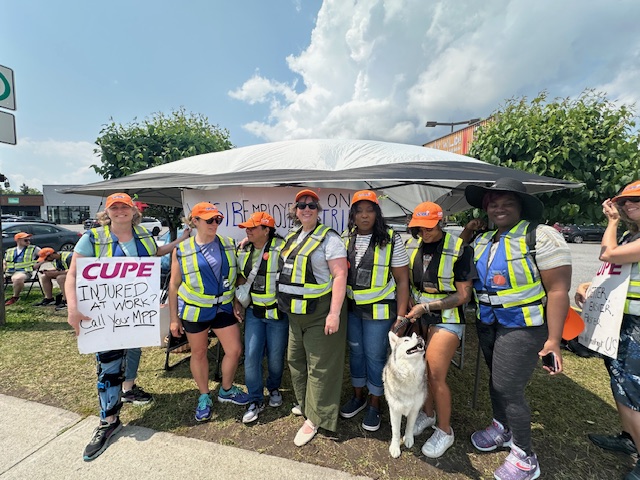Women in safety provide tips and strategies to thrive in male-dominated fields

Women in the safety industry are not just ascending to leadership roles—they are actively reshaping workplace culture. At the Women in Safety Summit in Calgary, industry leaders shared their experiences, offering strategies for career advancement while fostering inclusive, safety-driven workplaces. From mentorship and networking to advocating for policy changes, their insights illuminate a path forward for the next generation of female safety professionals.
Confidence and competence: Owning your seat at the table
Developing confidence in one's expertise is crucial for women aiming to advance in safety roles. Shannon Caron, senior director of health, safety, environment, and quality at Michels Canada, emphasized the importance of self-advocacy.
“I told myself, I’m getting a seat at that table, and then I told my company, I am getting a seat at that table—and now I’m at that table,” Caron shared.
Continuous learning also plays a vital role. Janet Holt-Killingbeck, director of health and safety field support at Hydro One, reflected on embracing growth through challenges.
“I used to hate failure, and I would take it so personally,” Holt-Killingbeck admitted. “But then I learned that failure is where you grow. Now, I welcome feedback and look for opportunities to improve.”
Power of mentorship and networking
Mentorship is instrumental in career development. Michelle Hogan, director of occupational health and wellness at the University of Guelph, highlighted the mutual benefits of knowledge sharing.
“There’s so much knowledge in this room,” Hogan noted. “Sharing your knowledge with others will also help you build confidence and professional growth.”
Networking also plays a key role in career advancement. Panelists encouraged women to step outside their comfort zones, attend industry events, and actively engage in conversations that shape workplace safety.
Advocating for policy change: The PPE problem
Women in safety are advocating for systemic changes to create more inclusive workplaces, particularly regarding personal protective equipment (PPE). Alicia Woods, CEO and founder of Covergalls, has been a leading voice in this area.
“Fifty percent of women don’t have access to proper PPE,” Woods stated, referencing a CSA Group study. “Almost 40% of women are modifying their PPE at home, cutting apart harnesses and sewing them back together. That’s terrifying.”
Woods praised Ontario’s initiative to mandate properly fitting PPE for women but called for nationwide standards. “Why can’t this be a single regulation across the country?” she questioned. “And how do we hold employers accountable?”
Balancing ambition with well-being
Achieving work-life balance is a common challenge and Hogan told the audience about how she set clear boundaries. “I told myself after the pandemic that I will not miss any more hockey practices or school concerts,” Hogan shared. “At the end of the day, work is work and family is family.”
Wendy Murphy, CEO of Timber Tech Truss LP, explained her approach to achieving balance doesn’t necessarily mean every day has a balance to it.
“Especially as a working mom and working father, life is about balance, but it's not about striking a balance every single day. It's about balance over your life, and sometimes it's all about your career, and sometimes it's all about your kids, and sometimes it's all about yourself. Don't forget that."
Final advice: Speak up and step forward
For women aspiring to leadership, panelists unanimously advised being vocal about career goals.
“Never assume that someone will see your potential,” encouraged Hogan. “Put your hand up. Tell your managers where you want to be in one year, three years, five years.”
Through confidence, mentorship, advocacy, and self-care, women in safety are demonstrating that career growth and cultural change are interconnected. As they advance, they pave the way for future generations to thrive in safer, more inclusive workplaces.





